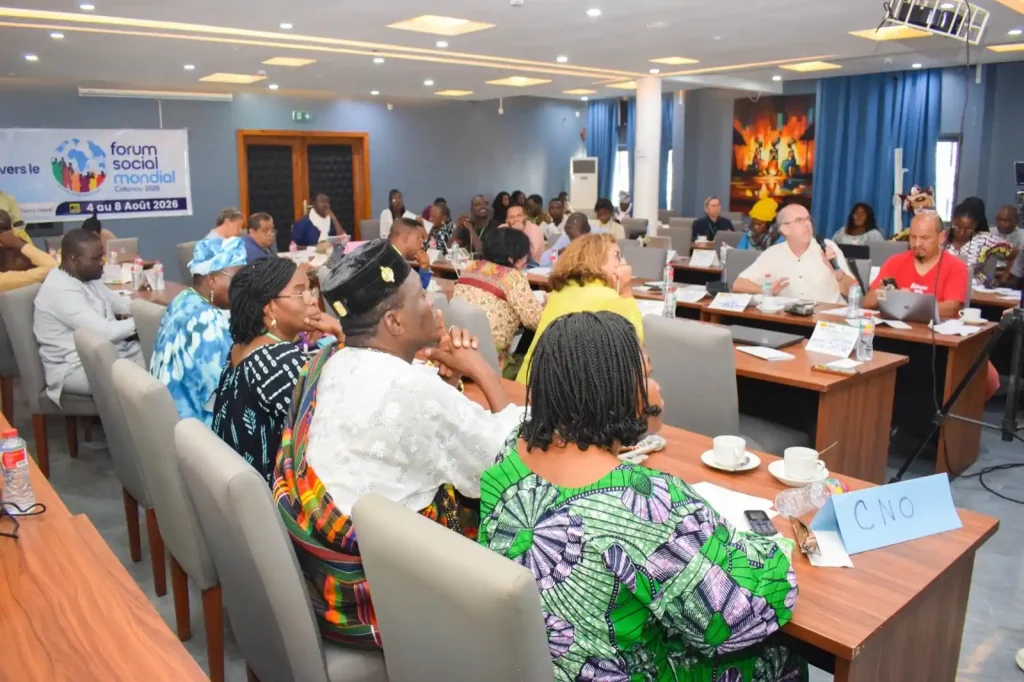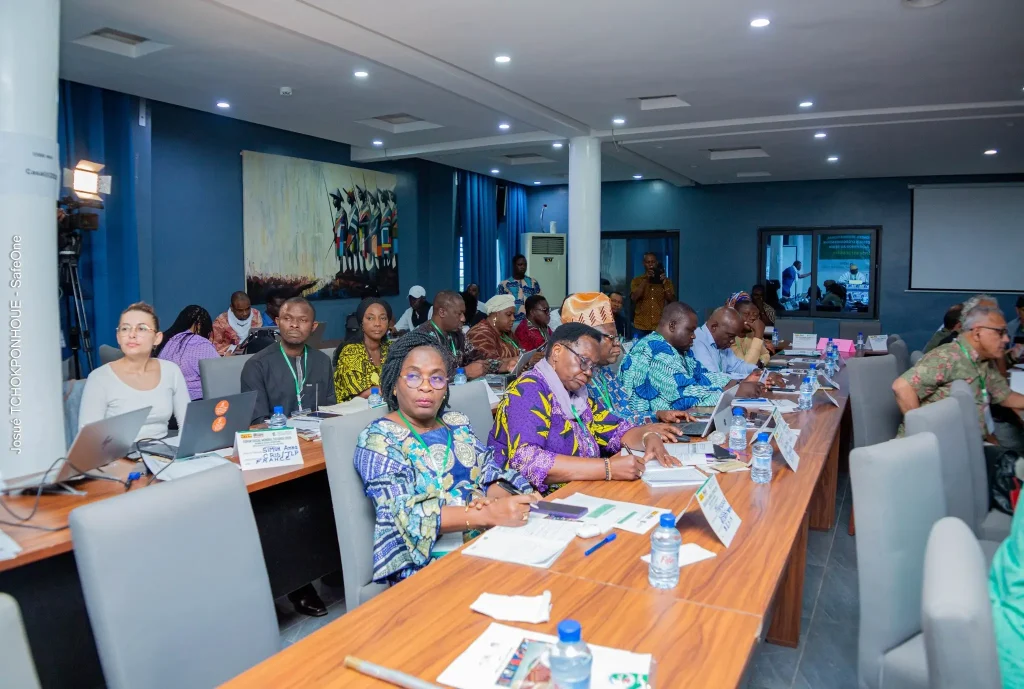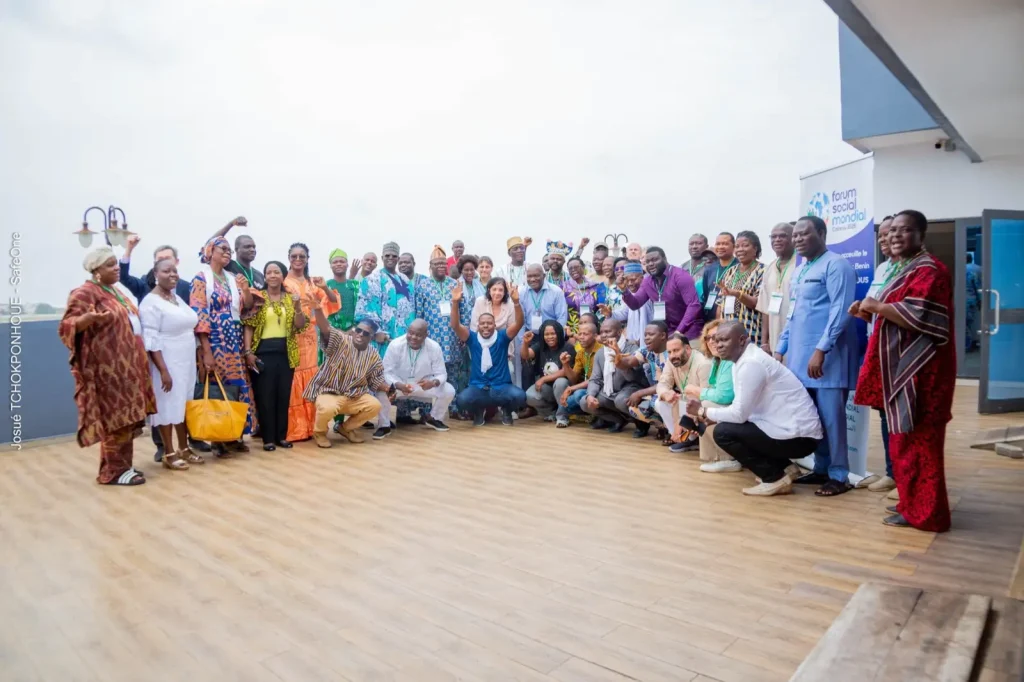The International Council (IC) of the World Social Forum (WSF) officially launched the organizational process for the 2026 World Social Forum (FSM 2026) at a pivotal meeting held from 28 to 30 July 2025 in Cotonou, Benin. The three-day gathering brought together African and international social movements, youth, women’s groups, rural communities, intellectuals, diaspora networks, and representatives of the Beninese government in a collective effort to shape a transformative global mobilization rooted in African realities. The opening ceremony marked a powerful beginning, with speakers emphasizing the need for FSM 2026 to reflect the lived experiences, alternatives, and visions of grassroots communities worldwide. Massa Koné, spokesperson for the Global Convergence of Land and Water – West Africa, stressed that Cotonou should not simply be a location on the map of the Forum, but a symbol of a historic turning point in global social struggles and popular resistance. A vibrant and symbolic FSM 2026 logo was unveiled, representing unity among peoples, African cultural richness, and the collective hope for another possible world.
Among the key thematic areas discussed during the meeting was the intersection of climate resilience and agricultural transformation. A hybrid panel session titled “Facing the Impact of Climate Change and Conventional Agriculture: What Alternatives?” sparked lively debate among environmentalists, farmers, youth leaders, and civil society actors. Concerns were raised over climate-induced threats such as droughts, soil erosion, and biodiversity loss, as well as the harmful consequences of chemically dependent conventional agriculture. Speakers advocated for agroecology as a people-centered alternative rooted in local knowledge, resilient seeds, and harmony with nature. Participants from countries including Burkina Faso, Mali, and Senegal shared their experiences and reaffirmed agroecology not just as a method but as a social movement aligned with food sovereignty and ecological justice. The commitment and availability of the Beninese government were highlighted as critical to ensuring the success of FSM 2026.


On the final day, the Council shifted focus to internal facilitation and strategic planning, adopting a participatory approach that encouraged inclusive dialogue on governance, mobilization, and themes. The Council reaffirmed four overarching thematic priorities: social justice, sovereignty of peoples, women’s rights and feminist struggles, and ecological transition. Participants emphasized the importance of encompassing engagement while calling for greater inclusion of youth, diaspora, rural communities, and minority groups. Clarifying roles, responsibilities, and follow-up mechanisms within the facilitation structure was also a key outcome. A strategic communication and mobilization plan was introduced, aimed at energizing local, regional, and global actors through grassroots outreach, partnerships with alternative media, and broader engagement with intellectuals and activists. As the Council concluded its work, it adopted a solid operational framework for continuity, including the organization of national and regional mobilization meetings, formation of thematic and geographic mobilization committees, outreach campaigns, and an official press conference and meeting with Benin’s Minister of the Interior.

A key highlight of the final day was the Asia–Africa Dialogue on Participation and Mobilization Dynamics for WSF 2026. Social activists from Asia and Africa came together to discuss joint strategies for strengthening interregional participation and collaboration. Arjun Karki, a member of the WSF International Council from Nepal, emphasized the importance of solidarity between Asia and Africa, noting their shared socio-political and economic challenges. He reaffirmed Asia’s support in mobilization efforts, including outreach to Chinese participants, and stressed the need to increase the visibility of both regions within global forums. During the dialogue, Ardo Sow, Convener of the WSF2026 Organizing Committee in Benin, proposed that Asia facilitate the engagement of the International Land Coalition (ILC) in the upcoming forum. As a gesture of mutual solidarity, Asian participants extended an invitation to the FSM 2026 team to attend the Asia Pacific Social Forum, scheduled to take place from 1 to 5 November 2025 in Bangkok, Thailand. To maintain strong coordination, the meeting concluded with an agreement to form a joint WhatsApp group to support communication and collaboration between Asia and Africa in the lead-up to FSM 2026.


